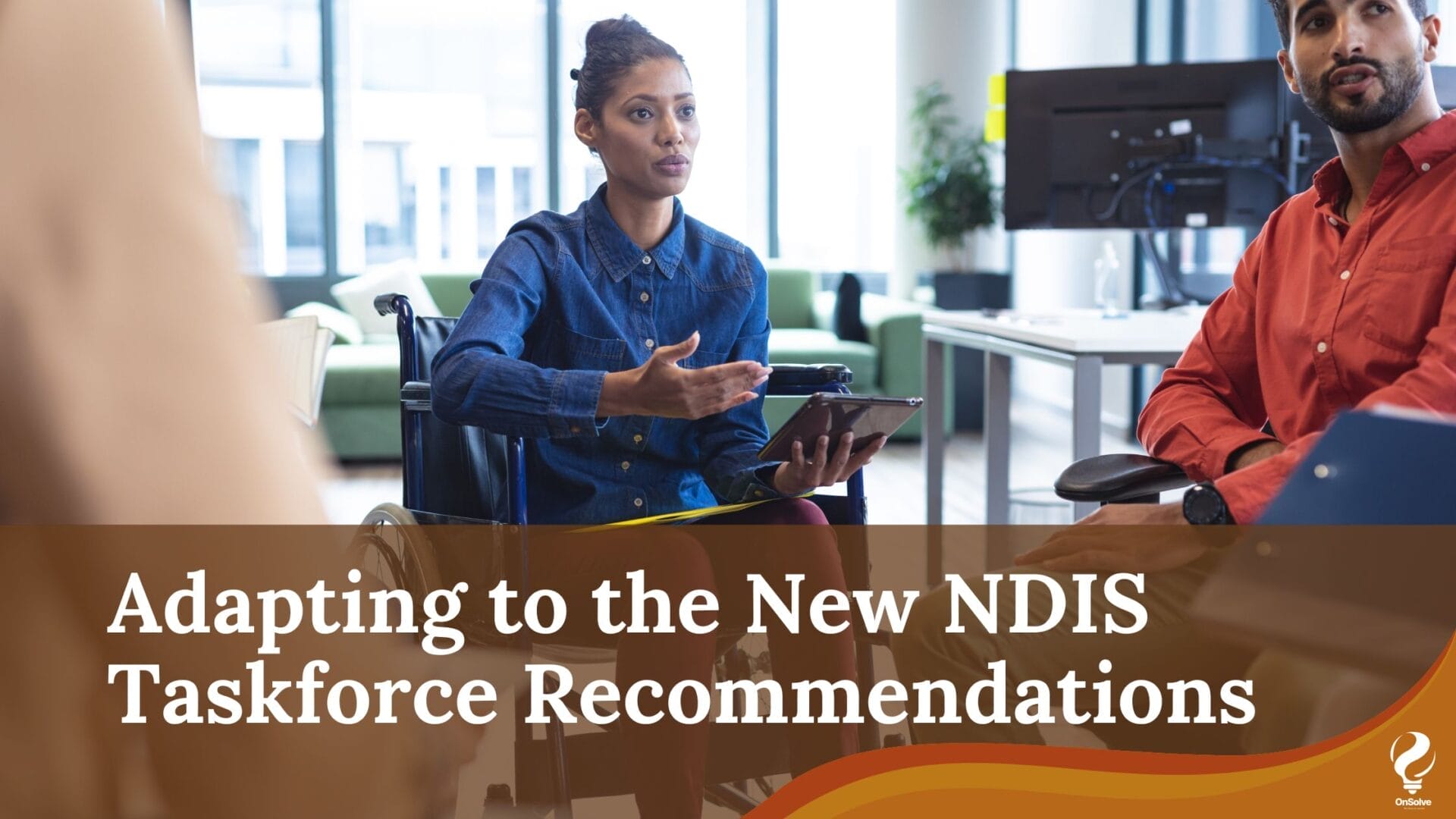In 2024, the Australian Government established the NDIS Provider and Worker Registration Taskforce to address key challenges within the National Disability Insurance Scheme (NDIS). This taskforce was established following the 2022 NDIS Review which identified a number of areas requiring reforms to create an effective, accessible and sustainable market and workforce.
The Taskforce’s Role
The taskforce’s primary objective is to design and implement a new risk-proportionate regulatory model. This is essential in enhancing the visibility and regulation of all providers and workers within NDIS. The approach is particularly focused on strengthening responses to long-standing and emerging quality and safeguarding issues within the sector. A more elaborate regulatory framework which will allow better balance between supervision and flexibility so that service providers are able to meet diverse requirements of NDIS participants, was highlighted in the final consultation report published in August 2024.
Key Updates from the Taskforce Recommendations
1. Risk-Based Regulation
The taskforce is proposing a graduated regulatory approach. Services that involve complicated medical or behavioral assistance from high-risk providers are subjected to more regular audits in a bid to increase scrutiny. This ensures that only providers meeting the highest standards can operate. On the other hand, lower risk providers will have less regulatory burden, thus enabling them to focus more on service delivery.
2. Enhanced Worker Screening and Compliance
This includes ongoing background checks and verification of professional qualifications. Such measures are meant to ensure that all workers can perform their duties effectively, minimize risks and allow for high standards of care.
3. Stricter Audits and Compliance Enforcement
Providers will now be subject to more frequent and unannounced audits. These audits will require detailed documentation to prove compliance with NDIS standards. Non-compliance will result in significant penalties, including fines and possible deregistration, underscoring the importance of strict adherence to the new regulations.
4. New Reporting and Feedback Mechanisms
Real-time incident reporting has been made mandatory in order to promote transparency as well as speedy resolution of issues. Emphasizing participant feedback to drive service improvements ensures that the NDIS remains responsive to the needs of participants, fostering a more participant-centered approach.
What Does This Mean for Providers?
Increased Scrutiny for High-Risk Providers
The providers who are delivering high-risk services must brace themselves for stringent supervision. This entails additional documentation, frequent audits, and compliance assessment. Adapting to these requirements will be critical to maintaining NDIS registration.
Investment in Training and Processes
Providers must enhance training programs to ensure staff are aware of and comply with the new standards. In addition, it will be necessary to take on board continuous professional development as well as strict background checks in order to satisfy more demanding employee screening criteria.
Implementation of Real-Time Reporting
To comply with the new reporting standards, providers will need to invest in systems and processes that support real-time incident reporting and efficient feedback mechanisms. This will require updates to internal policies and potential investment in technology.
Increased Operational Costs
The new regulations will likely lead to higher operational costs due to the need for enhanced compliance measures, additional audits, and continuous staff training. Providers must budget accordingly to ensure they can meet these requirements.
What Does This Mean for Participants?
Improved Service Quality and Safety
Due to tighter regulations on providers and more thorough screening of workers, participants can expect better quality of service and safety. This guarantees that only skilled employees will engage in caregiving tasks.
Faster Resolution of Issues
The requirement for real-time reporting on incidents implies that problems can be addressed promptly, enhancing participant safety and satisfaction. This change aims to create a more reliable and responsive service environment.
Greater Emphasis on Participant Feedback
This approach will cause services to be more customized because they pay most attention to feedback from participants. This participant-centered approach is expected to promote personalized assistance which is better suited for the NDIS as it embraces the evolution of its clients’ needs.
Increased Transparency and Accountability
With more stringent compliance and reporting mechanisms in place, participants will benefit from greater transparency and accountability from their service providers. This builds trust and confidence in the services received.
How OnSolve Can Support Your Compliance Journey
OnSolve helps providers find their way within the new NDIS regulations. We help maintain internal policies and procedures in line with client’s requirements. To avoid serious penalties and prepare providers for rigorous inspections, we conduct comprehensive compliance audits that uncover potential issues. We also offer targeted training programs to ensure staff are well-informed and capable of adhering to new regulations. Additionally, our ongoing support services provide ongoing compliance support to keep you updated on regulatory changes and assist with daily tasks, allowing you to focus on delivering high-quality care to NDIS participants.
Conclusion
The new NDIS Taskforce recommendations represent significant changes that require both providers and participants to adapt. The reform comes with tighter compliance rules while improving the standards of service delivery as well as ensuring participant safety. By proactively adapting to these changes and leveraging support from organizations, NDIS providers can navigate this transition effectively and continue to deliver outstanding care.








